Clinical data management plays a vital role in healthcare. It ensures the accuracy and compliance of data collected during clinical trials. As a clinical data manager, you oversee data processing, database design, and team supervision. Your work directly influences the outcomes of clinical trials. The demand for skilled professionals in clinical data management jobs is on the rise. With advancements in technology, there's a growing need for expertise in computer science. Tools like FineBI enhance data analysis, making your role even more crucial in today's healthcare landscape.
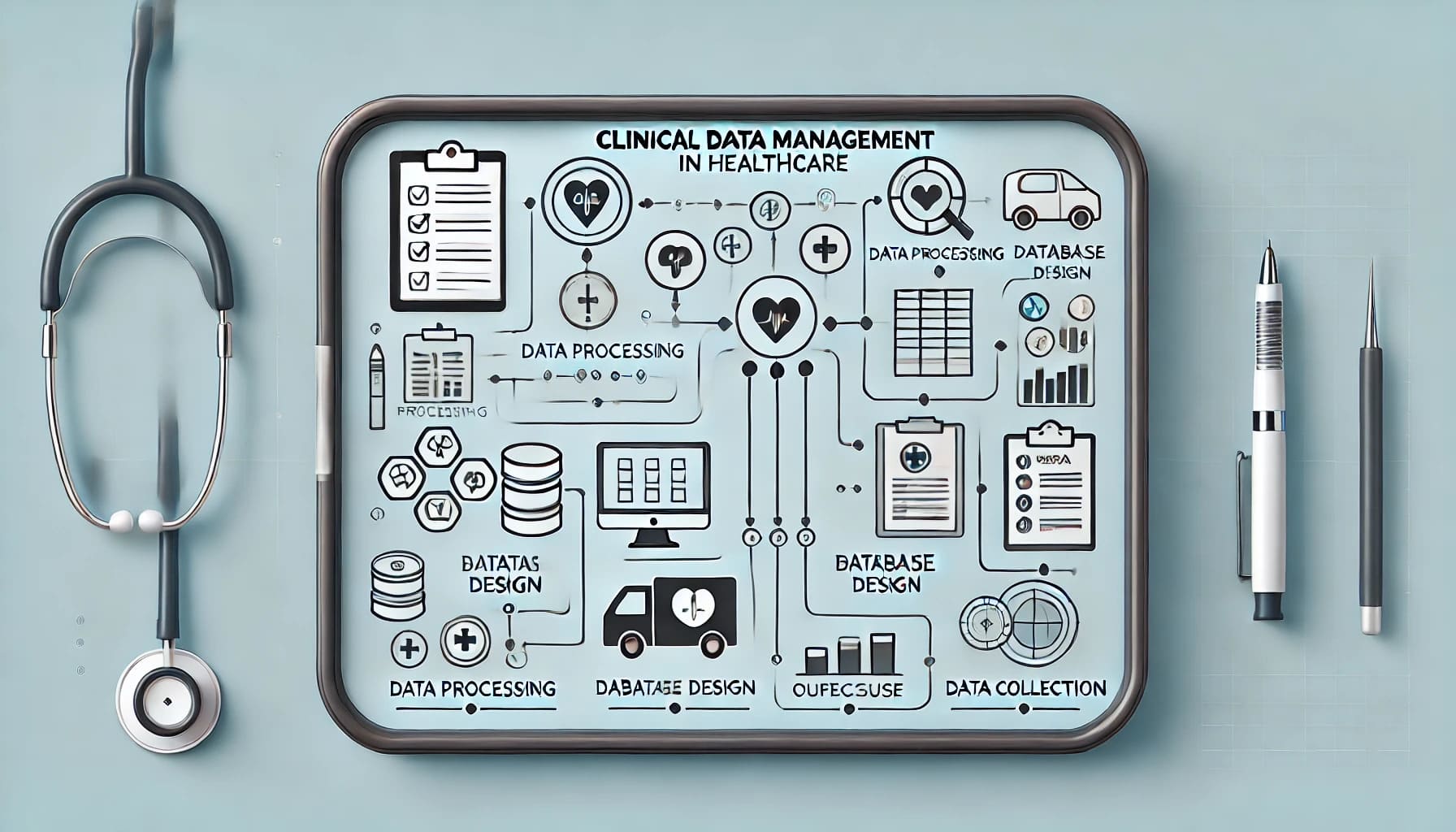
Clinical data management (CDM) is a vital component of healthcare, safeguarding the integrity and enhancing the quality of data collected during clinical trials. This ensures robust data integrity throughout the research process.You play a pivotal role in this process by managing data collection, validation, and analysis. Your work helps maintain the accuracy and reliability of trial data, which is essential for making informed decisions about new treatments and therapies.
As a clinical data manager, your core responsibilities include overseeing the design and implementation of databases that securely house clinical trial data, ensuring meticulous data collection. You maintain accuracy and consistency through data standardization to comply with regulatory standards, guaranteeing that every dataset meets the required quality benchmarks. Additionally, you lead and mentor a team of data entry professionals, emphasizing the importance of data consistency to maintain high-quality data. You also produce detailed reports that monitor the progress of clinical studies, delivering critical insights to researchers and stakeholders.
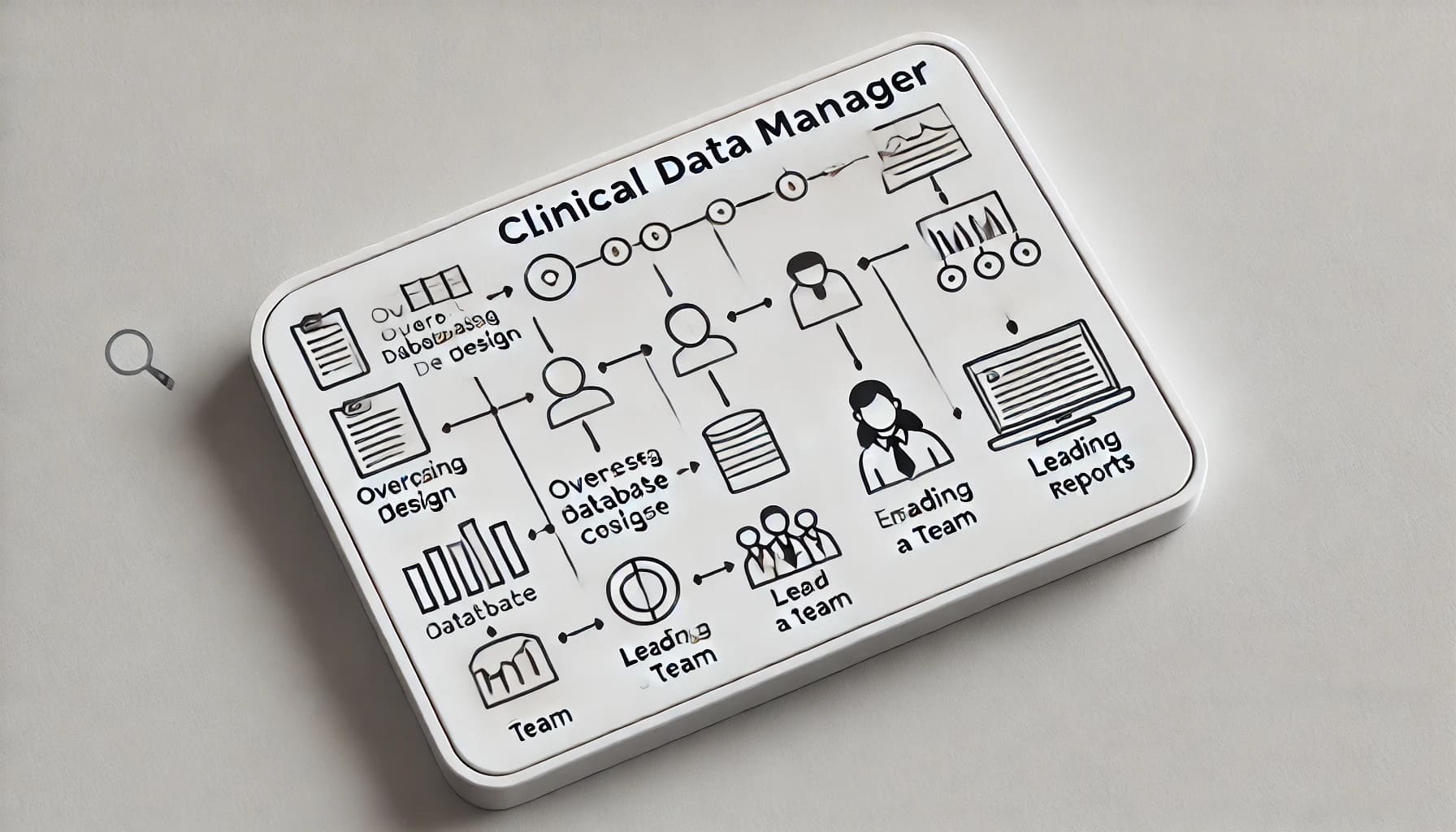
In clinical trials, your role as a clinical data manager is indispensable. You ensure that data collected from participants is accurate and complete. This data forms the backbone of clinical research, influencing the development of new drugs and medical devices. By maintaining high data quality, you help researchers draw valid conclusions and make evidence-based decisions.
Your work in clinical data management directly impacts patient safety and drug development. Accurate data collection and analysis help identify potential risks and side effects of new treatments. This information is vital for ensuring patient safety and improving the efficacy of new therapies. By contributing to the success of clinical trials, you play a significant role in advancing healthcare and bringing innovative treatments to market.
To step into the world of clinical data management jobs, you need the right educational background. Let's explore the degrees and certifications that can set you on the path to success.
A solid foundation in life sciences or data management is crucial. You might consider pursuing a degree in biology, chemistry, or computer science. These fields provide the essential knowledge needed to understand the complexities of clinical trials and data handling. A degree in data management equips you with the skills to manage and analyze large datasets effectively.
Certifications can give you an edge in the competitive job market. Consider obtaining certifications like the Certified Clinical Data Manager (CCDM) or the Clinical Data Management Professional (CDMP). These credentials demonstrate your commitment to maintaining high standards in data integrity and regulatory compliance.
In addition to formal education, you need a blend of technical and soft skills to excel in clinical data management jobs.
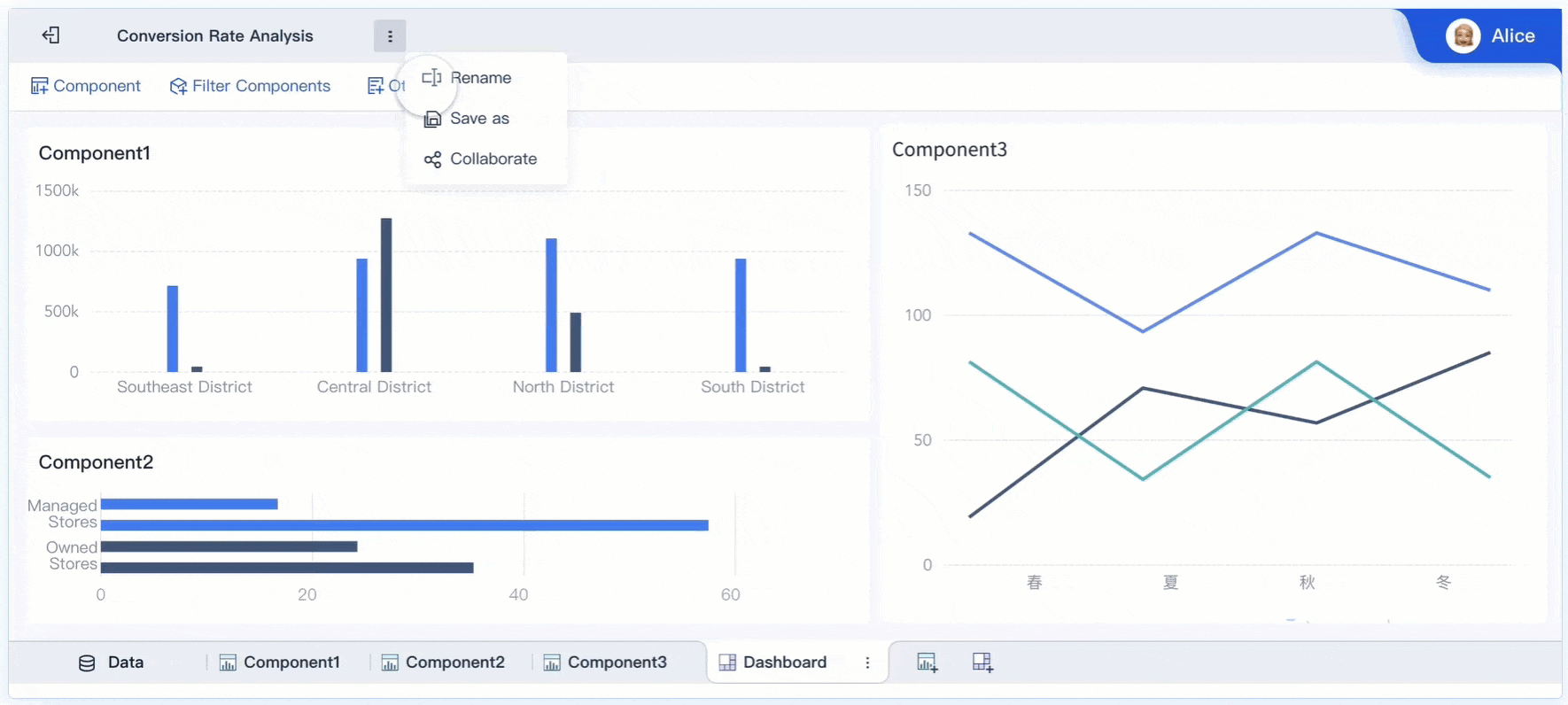
By combining the right education with these skills, you can position yourself for a successful career in clinical data management. This dynamic field offers numerous opportunities for growth and innovation, making it an exciting career choice.
Embarking on a career in clinical data management requires more than just education. You need hands-on experience to truly understand the intricacies of the field. Let's explore how you can gain valuable experience and make your mark in clinical data management jobs.

Starting at the entry level is a great way to build your foundation in clinical data management. These positions offer you the chance to learn and grow in a supportive environment.
Internships provide a fantastic opportunity to gain practical experience. They allow you to work alongside seasoned professionals and learn the ropes of clinical data management. During an internship, you might assist with data entry, help design databases, or even participate in data analysis. This hands-on experience is invaluable and can set you apart from other candidates when applying for full-time positions.
Junior data management roles are another excellent starting point. In these positions, you take on more responsibility and begin to apply your skills in real-world scenarios. You might oversee data collection processes or ensure data quality and compliance. These roles help you develop a keen eye for detail and enhance your problem-solving abilities. As you gain experience, you'll find yourself ready to tackle more complex challenges in clinical data management jobs.
Building a strong professional network is crucial in any career, and clinical data management is no exception. Networking can open doors to new opportunities and provide you with valuable insights into the industry.

Joining industry groups connects you with like-minded professionals who share your passion for clinical data management. These groups often host events, webinars, and discussions that keep you informed about the latest trends and developments. By participating in these activities, you can learn from experts and gain a deeper understanding of the field.
Conferences and workshops offer a wealth of knowledge and networking opportunities. They bring together professionals from various sectors of healthcare and clinical research. Attending these events allows you to learn about cutting-edge technologies and methodologies. You can also meet potential mentors and collaborators who can guide you in your career journey. Engaging with others in the field can inspire you and provide fresh perspectives on clinical data management jobs.
"Working on the development of a new drug and then seeing it make it to the market and is being used to treat people is a great feeling." This sentiment captures the rewarding nature of clinical data management. By gaining experience and building connections, you contribute to meaningful advancements in healthcare.
Finding your way in the clinical data management job market can feel like a daunting task. But with the right strategies, you can make the process smoother and more effective. Let's dive into some practical tips to help you land your dream job in this field.
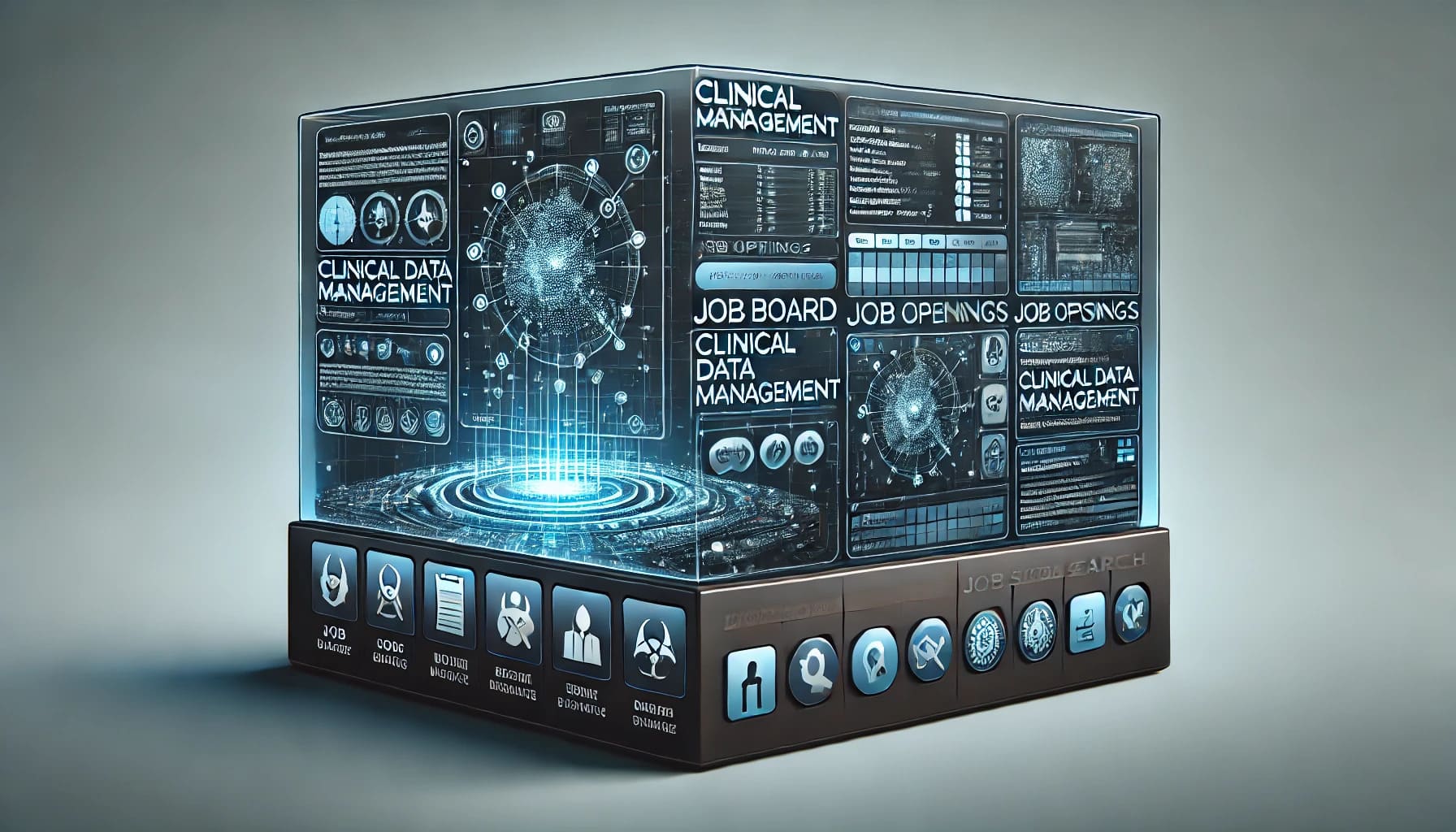
When searching for clinical data management jobs, you need a plan. Here are some strategies to get you started:
Job boards are a great resource for finding clinical data management positions. Websites like Indeed, Glassdoor, and LinkedIn often list numerous opportunities. You can filter your search by location, experience level, and salary range. Make sure to set up job alerts so you never miss a new posting. Regularly updating your resume and tailoring it to each job description can also increase your chances of getting noticed.
Your professional network is a powerful tool in your job search. Connect with colleagues, mentors, and industry professionals on platforms like LinkedIn. Join groups related to clinical data management to stay informed about industry trends and job openings. Attend networking events, webinars, and conferences to meet potential employers and learn from experts. Building relationships in the industry can lead to valuable job leads and insights.
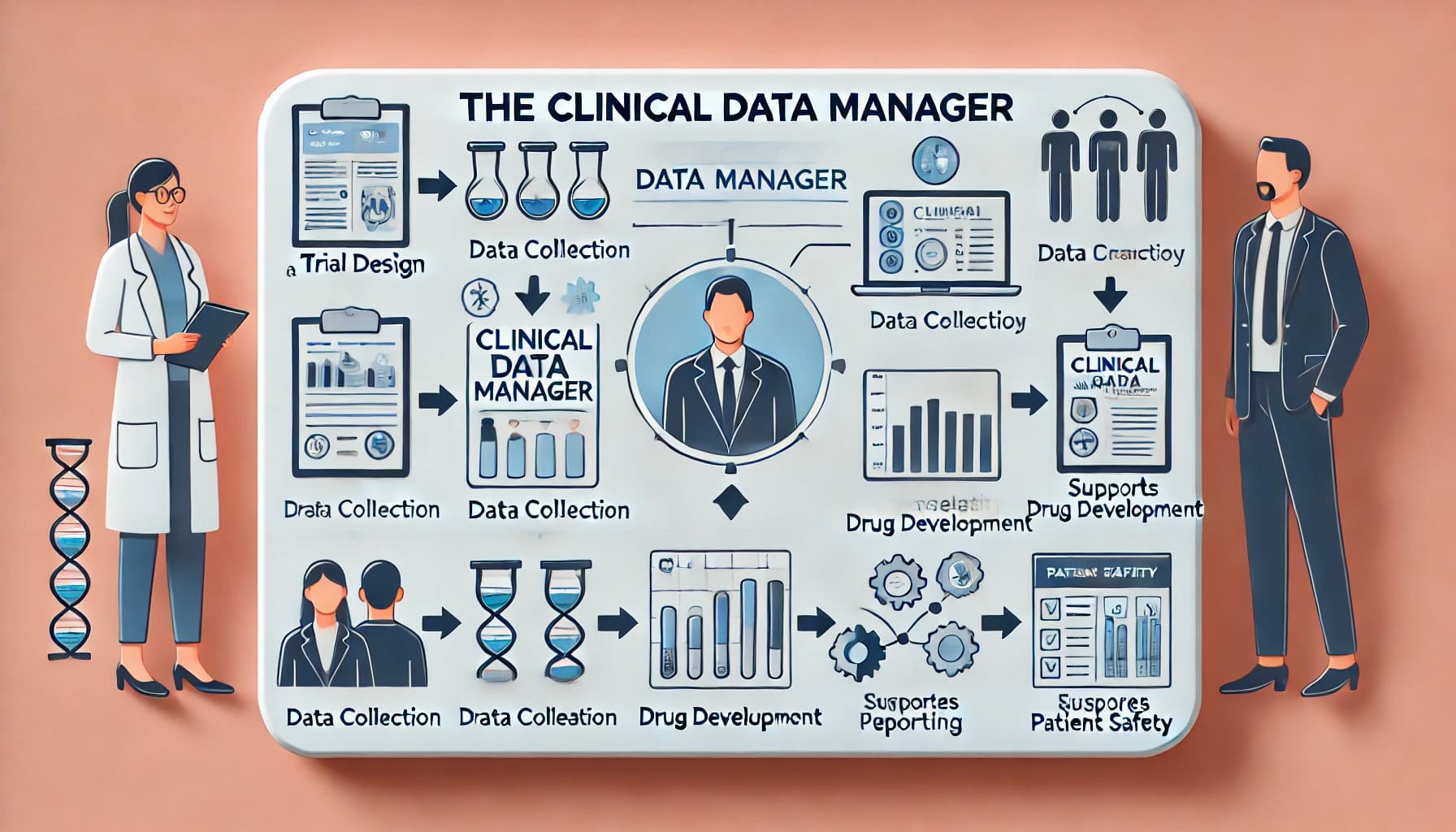
Once you've secured an interview, preparation is key. Here's how you can get ready to impress potential employers:
Expect to face questions about your experience and skills in clinical data management. Interviewers might ask about your familiarity with data analysis tools or your understanding of regulatory standards. Practice answering questions like, "How do you ensure data accuracy?" or "Describe a time you solved a data-related problem." Being prepared with specific examples will help you stand out.
During the interview, showcase your skills and experience confidently. Highlight your technical abilities, such as proficiency in data analysis software like FineBI. Discuss your experience with database management and your knowledge of industry regulations. Don't forget to mention your soft skills, like communication and problem-solving, which are crucial in clinical data management jobs. Providing concrete examples of past successes will demonstrate your capability and readiness for the role.
By following these strategies, you can navigate the clinical data management job market with confidence. Remember, persistence and preparation are your best allies in securing a rewarding position in this dynamic field.
As you progress in your career, you'll find numerous opportunities to specialize and take on leadership roles. Let's explore some paths you can take to advance in clinical data management jobs.
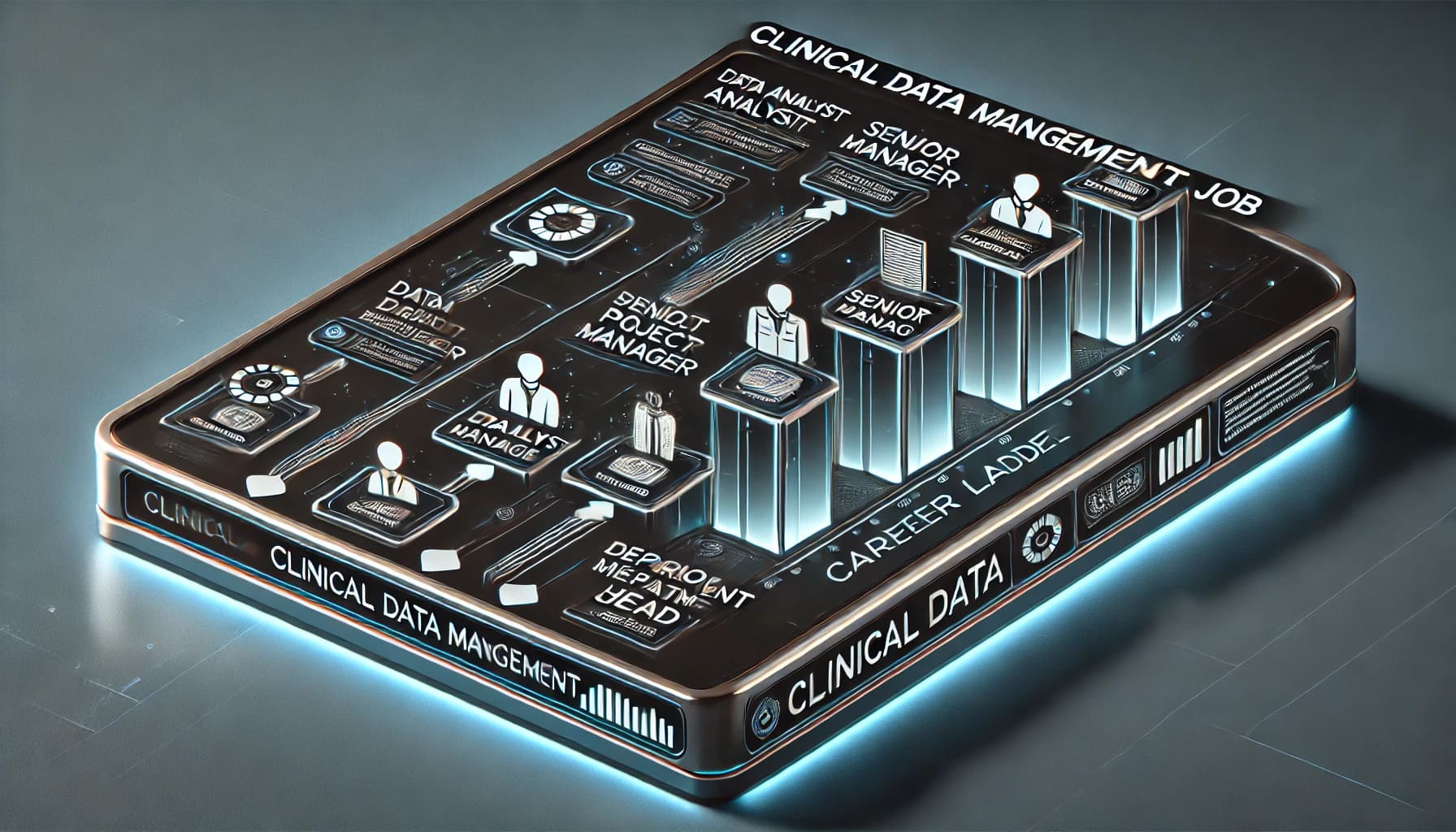
Specializing in a particular area can set you apart and open doors to exciting opportunities.
If you have a knack for numbers and patterns, data analysis might be your calling. As a data analyst, you dive deep into datasets, uncovering insights that drive decision-making in clinical trials. Your expertise in tools like FineBI will be invaluable as you transform raw data into actionable information. This specialization not only enhances your analytical skills but also positions you as a key player in the development of new treatments.
Project management offers another rewarding path. Here, you oversee clinical data projects from start to finish. You coordinate teams, manage timelines, and ensure that projects meet regulatory standards. Your leadership skills shine as you guide your team to success. By mastering project management, you become an essential link between data collection and clinical research outcomes.
Taking on leadership roles allows you to influence the direction of clinical data management within your organization.
As a team lead, you mentor and guide junior data managers. You ensure that your team maintains high data quality and adheres to industry standards. Your role involves problem-solving and decision-making, as you address challenges that arise during data collection and analysis. Leading a team not only hones your leadership skills but also prepares you for more senior positions.
Becoming a department head is a significant milestone. In this role, you shape the strategic vision for clinical data management within your organization. You oversee multiple teams, ensuring that all projects align with company goals and regulatory requirements. Your experience and expertise drive innovation and efficiency in data management practices. As a department head, you play a pivotal role in advancing healthcare and improving patient outcomes.
By exploring these career advancement opportunities, you can carve out a fulfilling and impactful career in clinical data management jobs. Whether you choose to specialize or lead, your contributions will make a difference in the world of healthcare.
In the world of clinical data management jobs, you face several challenges. These hurdles can impact the quality and integrity of your work. But don't worry! With the right strategies, you can overcome them and excel in your role.
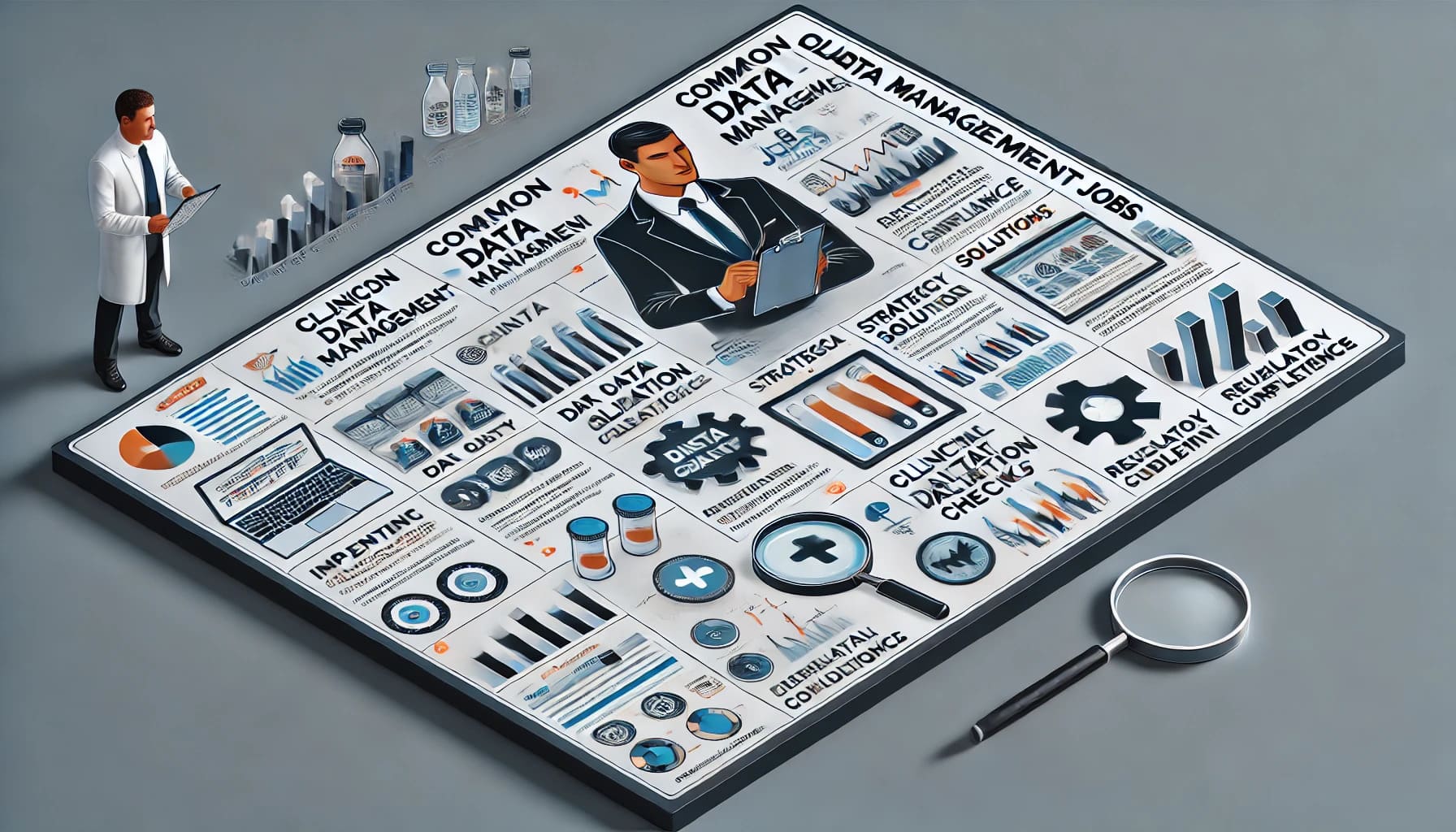
Data quality issues often arise in clinical data management. You might encounter errors during data collection or entry. These mistakes can lead to inaccurate results, affecting the entire clinical trial. To tackle this, focus on designing a robust database. A well-structured database ensures efficient data collection and storage. It minimizes errors and aligns your team, leading to reliable outcomes.
Regulatory compliance is another significant challenge. You must adhere to guidelines like Good Clinical Practice (GCP) to maintain data integrity. Understanding these regulations is crucial. It ensures that your data management processes meet industry standards. By staying informed about regulatory requirements, you can ensure compliance and uphold the quality of your work.
Continuous learning is key to overcoming challenges in clinical data management jobs. Stay updated with the latest industry trends and technologies. Attend workshops, webinars, and conferences to expand your knowledge. Engaging in continuous education helps you adapt to changes and improve your skills. This proactive approach keeps you ahead in the field.
Implementing best practices enhances your efficiency and effectiveness. Start by establishing robust data validation checks. Automated protocols ensure data accuracy and integrity. Regularly review and update your processes to align with industry standards. By adopting best practices, you maintain high-quality data and contribute to successful clinical trials.
"The secret of getting ahead is getting started." - Mark Twain
This quote reminds you that taking the first step is crucial. By addressing challenges head-on and implementing these strategies, you pave the way for success in clinical data management jobs.
The landscape of clinical data management jobs is evolving rapidly. As you look to the future, you'll notice several key trends shaping the field. Let's dive into these exciting developments.
Technology continues to revolutionize clinical data management. You can expect to see significant changes driven by cutting-edge innovations.
Artificial Intelligence (AI) and Machine Learning (ML) are transforming how you handle data. These technologies automate complex tasks, making data analysis faster and more accurate. Imagine AI algorithms sifting through vast datasets to identify patterns and insights that would take you hours to uncover manually. This not only saves time but also enhances the precision of your work. By embracing AI and ML, you position yourself at the forefront of clinical data management jobs.
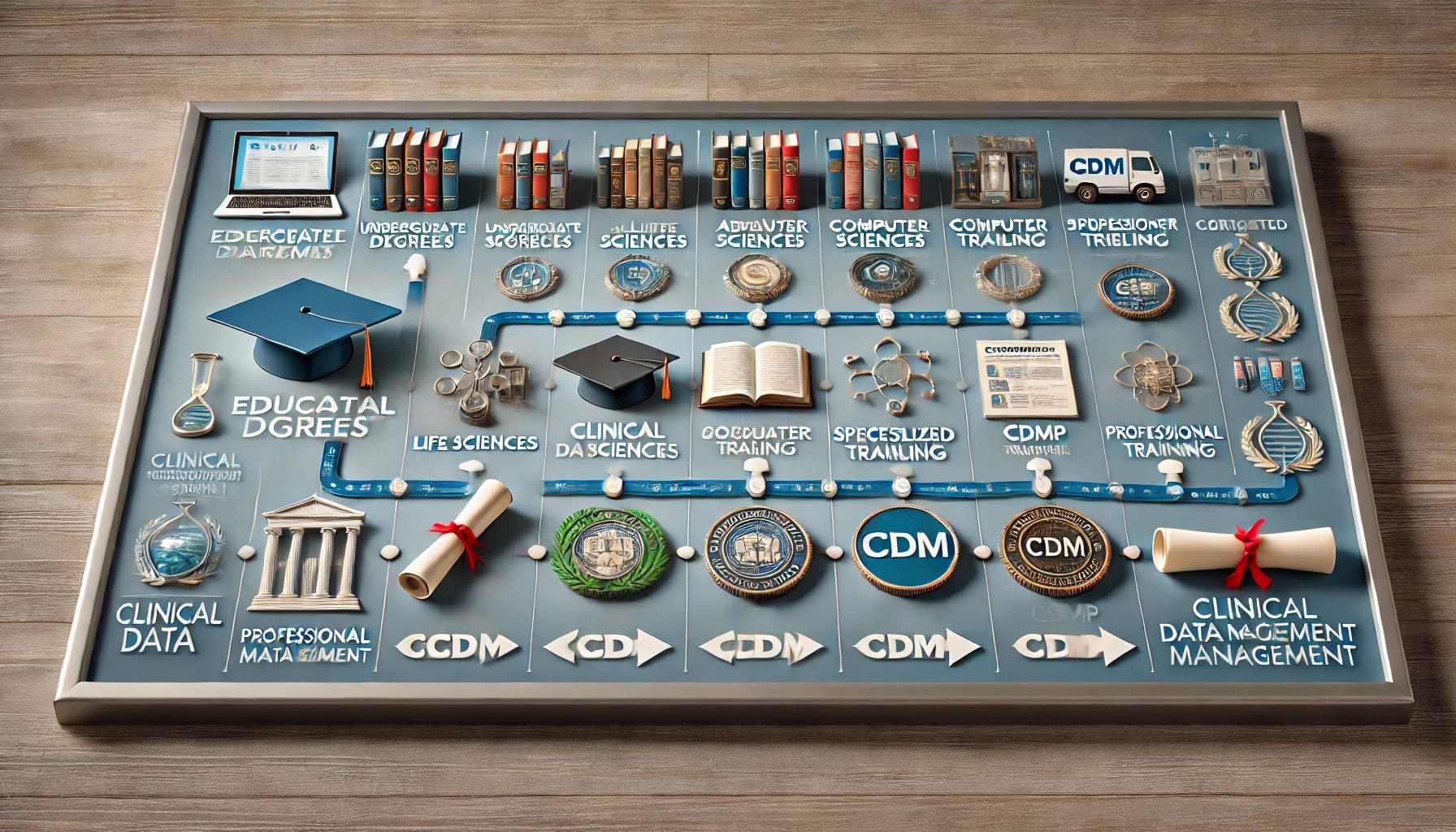
Big Data integration is another game-changer. With the explosion of data from various sources, you need tools that can handle and analyze this information efficiently. Big Data technologies allow you to process and interpret massive datasets, providing a comprehensive view of clinical trials. This holistic approach leads to better decision-making and improved patient outcomes. As you adapt to these advancements, you'll find new opportunities to excel in your role.
Regulations in clinical data management are constantly changing. Staying informed about these shifts is crucial for your success.
Regulatory changes significantly influence how you manage and store data. For instance, stricter data privacy laws might necessitate the implementation of enhanced security measures to ensure compliance. By understanding these evolving regulations, you can adjust your processes to maintain data security, as well as the integrity and confidentiality of your data.
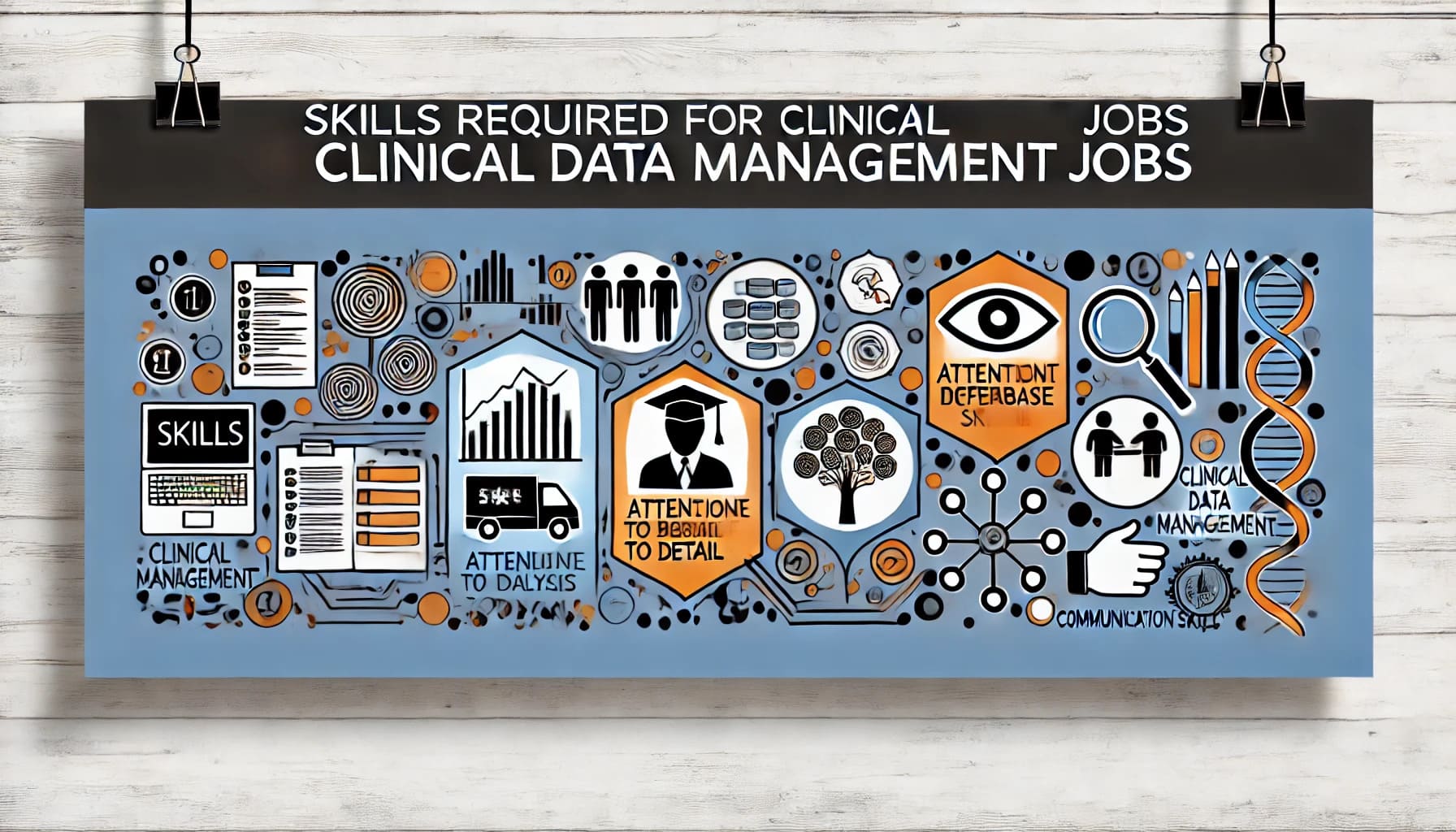
Preparation is key to navigating the evolving regulatory landscape. Keep yourself updated with the latest industry standards and best practices. Attend workshops and seminars to learn about upcoming changes and how they affect clinical data management jobs. By staying proactive, you ensure that your skills and knowledge remain relevant, allowing you to thrive in this dynamic field.
"The only constant in life is change." - Heraclitus
This quote perfectly captures the essence of clinical data management. Embracing technological advancements and adapting to regulatory changes will keep you ahead of the curve. As you navigate these trends, you'll discover new ways to contribute to the success of clinical trials and improve healthcare outcomes.
Exploring the landscape of clinical data management jobs opens up a world of possibilities. Whether you're just starting out or looking to specialize, there are numerous paths you can take.
Starting your career in clinical data management often begins with entry-level positions. These roles provide a solid foundation and help you understand the basics of data handling in clinical settings. As an entry-level professional, you might work as a data management assistant or a junior data analyst. These positions involve tasks like data entry, database maintenance, and basic data analysis. By gaining experience in these roles, you build the skills necessary for more advanced positions.
Once you've gained some experience, you can explore advanced roles and specializations. You might choose to become a senior data manager, where you oversee complex data projects and lead teams. Alternatively, you could specialize in areas like data analysis or regulatory compliance. Specializing allows you to focus on specific aspects of clinical data management, making you an expert in your chosen field. This expertise not only enhances your career prospects but also contributes significantly to the success of clinical trials.
FanRuan and its product FineBI play a pivotal role in enhancing clinical data management jobs. They provide tools and solutions that streamline data processes and improve efficiency.
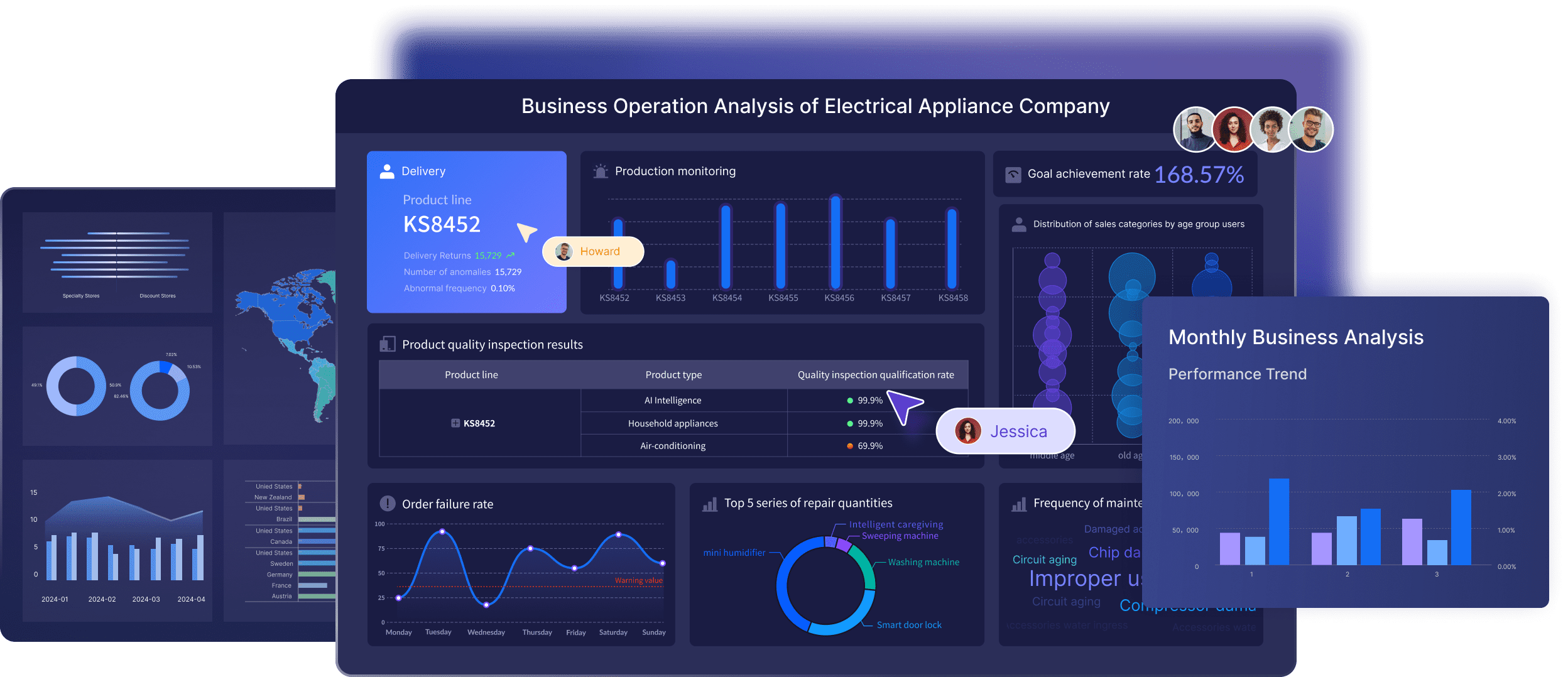
FineBI is a powerful tool that transforms how you analyze data. It offers features like real-time data analysis and visualization, making it easier to interpret complex datasets. With FineBI, you can quickly identify trends and patterns, providing valuable insights for clinical trials. This tool enhances your ability to make informed decisions, ultimately improving patient outcomes. By leveraging FineBI, you stay ahead in the fast-paced world of clinical data management.
FanRuan, the company behind FineBI, contributes significantly to the field of clinical data management. Their focus on innovation and customer-centric solutions empowers you to handle data more effectively. FanRuan's tools help break down data silos, ensuring seamless integration and access to critical information. This capability is crucial for maintaining data quality and compliance in clinical trials. By using FanRuan's solutions, you enhance your data management practices and contribute to the advancement of healthcare.
"Innovation distinguishes between a leader and a follower." - Steve Jobs
This quote highlights the importance of embracing innovative tools like FineBI in clinical data management jobs. By doing so, you position yourself as a leader in the field, ready to tackle the challenges of tomorrow.
You've explored the dynamic world of clinical data management jobs. This field offers a rewarding career path with opportunities for growth and innovation. As a clinical data manager, you ensure the accuracy and quality of data, which is crucial for successful clinical trials. Your role impacts patient safety and drug development. Embrace this exciting journey and contribute to advancements in healthcare. The demand for skilled professionals continues to rise, making now the perfect time to pursue a career in clinical data management.
Click the banner below to experience FineBI for free and empower your enterprise to convert data into productivity!
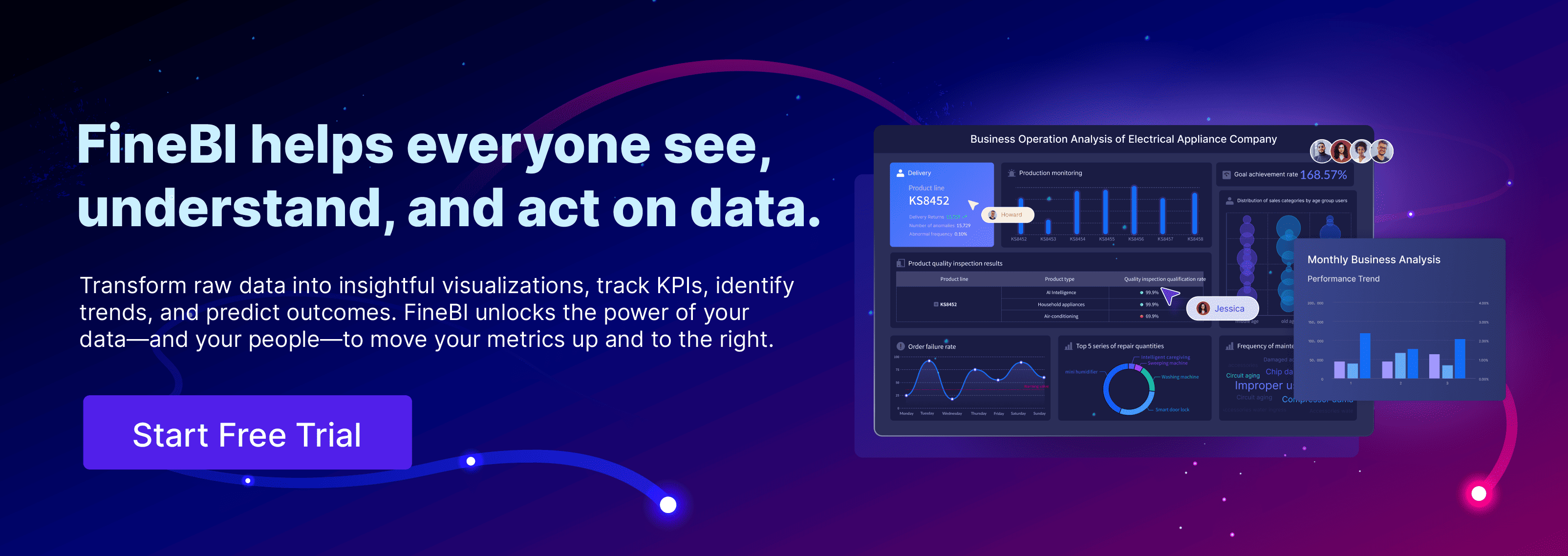
Enhancing Analysis with Effective Data Cleaning Techniques
What Does a Data Management Specialist Do?
Understanding Engineering Data Management
Essential Guide to Supplier Data Management Best Practices

The Author
Howard
Data Management Engineer & Data Research Expert at FanRuan
Related Articles
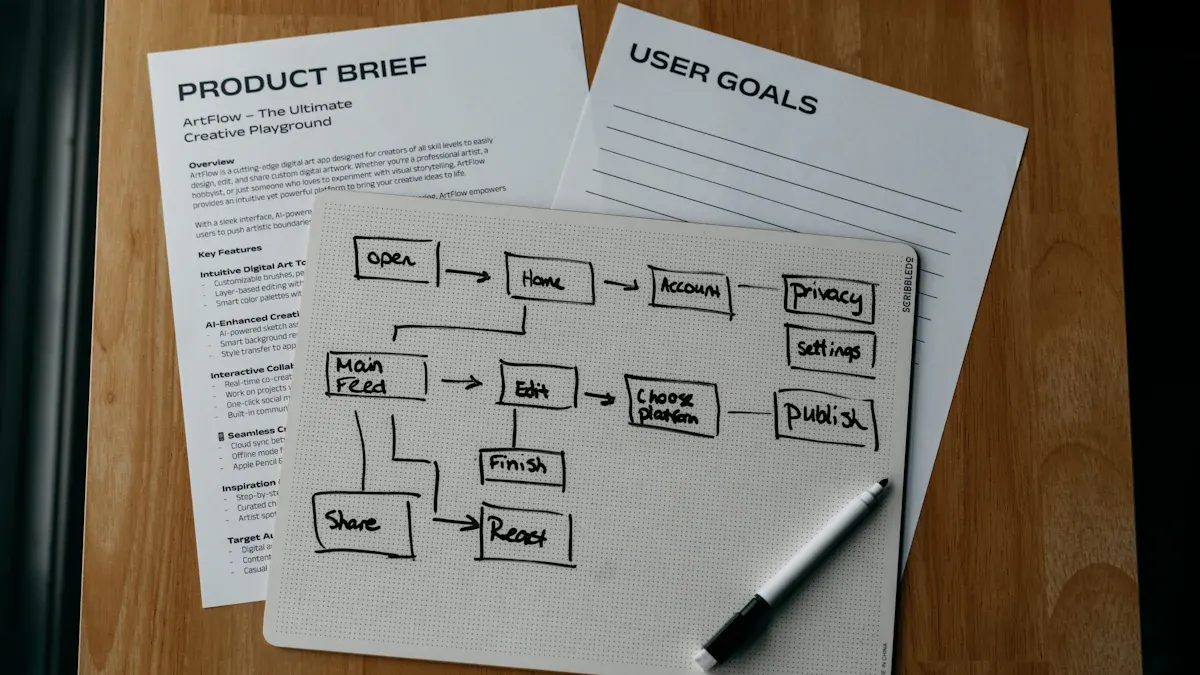
What is a data management platform in 2025
A data management platform in 2025 centralizes, organizes, and activates business data, enabling smarter decisions and real-time insights across industries.
Howard
Dec 22, 2025

Top 10 Database Management Tools for 2025
See the top 10 database management tools for 2025, comparing features, security, and scalability to help you choose the right solution for your business.
Howard
Dec 17, 2025

Best Data Lake Vendors For Enterprise Needs
Compare top data lake vendors for enterprise needs. See which platforms offer the best scalability, integration, and security for your business.
Howard
Dec 07, 2025